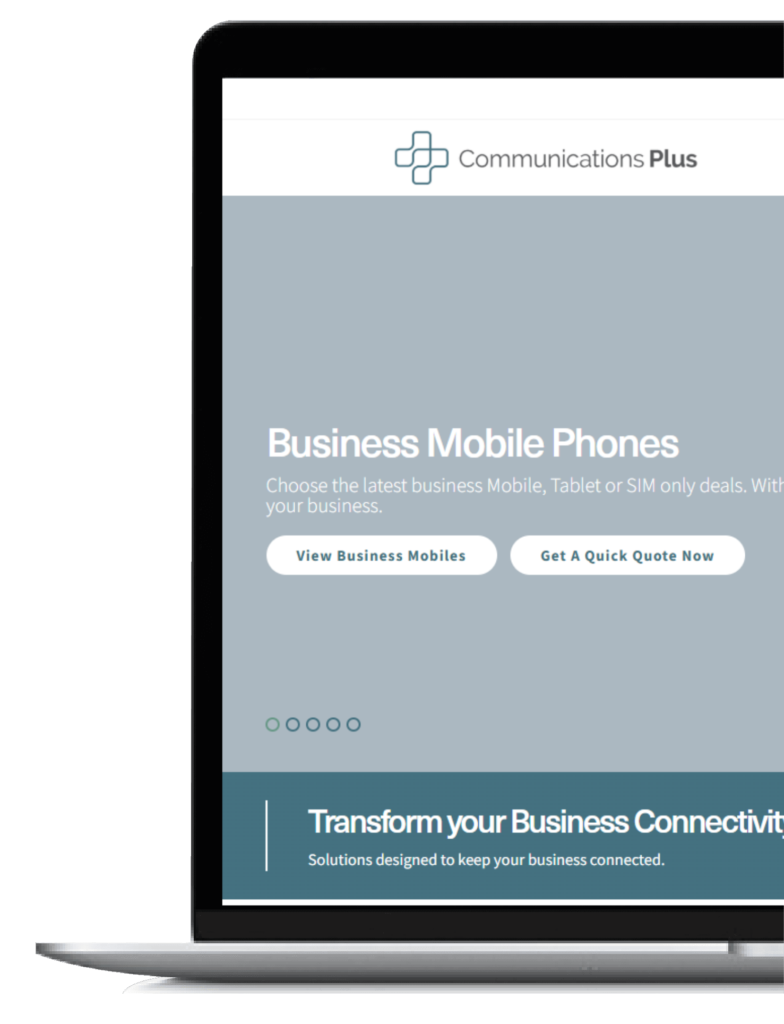Nearly a quarter of the UK workforce is now thought to be working from home, according to stats by the Office of National Statistics.
In some industries, more than three quarters of staff are working from home.
Which means a growing need for mobile devices so employees can work from anywhere.
There are two options when it comes to mobile or smartphones in your business:
- Use a Bring Your Own Device (BYOD) policy, and let employees use their personal phones for work
- Invest in dedicated business mobile phones
Let’s take a look at the benefits and drawbacks of both approaches.
The pros and cons of BYOD
Employees might prefer to use their own mobile, tablet, or laptop.
In this case, the employer pays a stipend to the employee to offset their plan costs.
Around 45% of UK businesses reported using the BYOD model. Global Market Insights predicts that the global market value for BYOD mobile device management will grow to $11 billion by 2026.
But there are several issues to consider with BYOD.
Pros
- Can be cheaper in the short term
BYOD reduces employer expenses in the short term. There are no delays with issuing business devices, or problems with managing mobile carrier plans.
- Simple
Will employees want to carry two phones? Having just one keeps employees connected without having to manage multiple devices.
- Ease for employees
People are already familiar with their own devices. They won’t have to learn how to use a new smartphone, potentially with a different operating system. Just be wary about whether this individual productivity will translate to the rest of the business and the possible compatibility issues with other devices.
Cons
- Privacy
Employees might be unhappy with giving their personal number to coworkers or customers. They may also have concerns about employers accessing their personal data.
- User Responsibility
You’re completely reliant on individual employee’s following policies and procedures, and making sure their phone is always updated and carrying the latest version of applications and security measures. Plus, they’ll be responsible for fixing or replacing broken phones, which they might not have the money for.
- Lack of Savings
Spending more on IT so your systems work for varying platforms and hardware could wipe out any savings you’ll make. Plus, corporate bulk purchases have access to significant discounts that individual plans don’t.
- Compliance Concerns
Data management and adhering to privacy regulations is more difficult with BYOD. It involves navigating several legal minefields (not to mention security worries). Employees aren’t always proactive with updating operating systems, security or applications. Plus, some ‘consumer’ applications don’t have the same level of basic security as enterprise applications, which puts your network at risk.
The pros and cons of business mobile phones
Providing business mobile phones means you know exactly what devices are being used for your business.
You know they’re compatible. And you have support on hand if something goes wrong.
Here are the main advantages and disadvantages of business mobile phones:
Pros
- Customisation
Companies get to choose the hardware, operating systems, and service providers with handpicked features. They can build their business phone network around their business, rather than the other way around.
- Efficiency
The process of configuring and deploying devices is more streamlined when you can do it in bulk. The same goes for maintenance and repairs. Employees can get their new devices, configured and ready to use right out of the box.
- Security
Installing and maintaining security programmes is much easier, too. You’ll also have more control over company data if you keep devices whenever an employee leaves your organisation.
- Corporate Discounts
Though there’ll be more expenses to manage when providing business mobile phones for employees, you can offset some of these with bulk purchase discounts. Companies can negotiate with vendors for better deals on high volume contracts.
- Overall Costs
Yes, you’ll have the initial investment of your new business mobile phones. But after that, the general maintenance and updates are cheaper to manage. You don’t have any unexpected costs if an employee breaks or loses a phone.
Cons
- Multiple Phones
Some companies allow limited personal use of business devices, but most employees don’t like their personal activities to be monitored. However, carrying around a business phone and a personal phone is often inconvenient.
- Learning Curves
When you provide devices, there’s a chance that some of your employees will be unfamiliar with them. This means extra time and resources spent training employees to use business devices.
Enterprise mobility management
One of the biggest benefits of providing business mobile phones is that employers can easily implement a mobile device management system.
You can implement mobile device management for BYOD, but this is much more complicated.
Enterprise mobility management is indispensable when it comes to things like:
- Setting secure passwords
- Updating software
- Restricting access to applications
- Prohibiting jailbreaking
- Enabling faster issue resolution
- Remotely locking or wiping lost/stolen devices
This service helps you with procuring and distributing devices throughout your business, affording greater visibility and control.
With the help of mobile service management, some businesses may be more comfortable compromising with a hybrid model.
A Choose Your Own Device (COYD) service allows employees to choose from a small range of pre-approved devices.
You’ll still be providing a business mobile phone, but also enabling personal use without worrying about security as much.
Is BYOD or business mobile phones the best way to go?
Ultimately, the business phone model you choose to go with is your decision.
The best model for you depends on factors such as the nature of your business and the number of employees.
If you’ve considered all the pros and cons above but need further advice, contact a business communications company for an expert opinion.
Do you want to see how much money you could save on mobile phones for your business?










